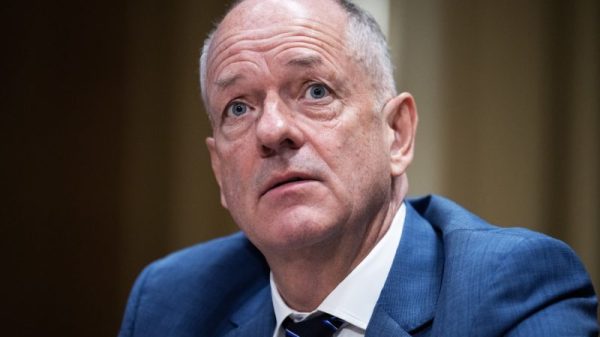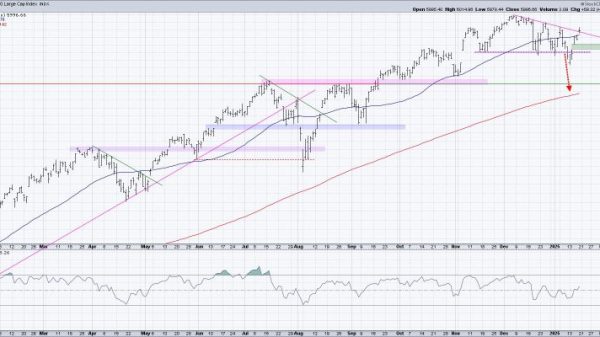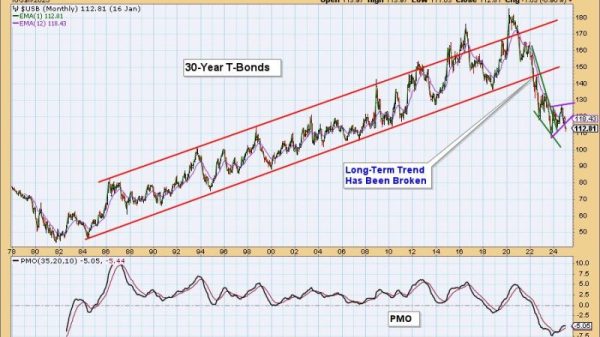Iran’s snap presidential election will head to a second vote on Friday, with a reformist and conservative hardliner facing off to replace Ebrahim Raisi amid unprecedented voter apathy.
After none of the four initial candidates secured more than 50% of the vote on June 28, reformist lawmaker Masoud Pezeshkian and ultraconservative former nuclear negotiator Saeed Jalili emerged as the two candidates with the most votes, with Pezeshkian leading by 3.9 percentage points.
The first round, however, saw the lowest voter turnout for a presidential election since the Islamic Republic was established in 1979, highlighting the discontent among a population losing faith in the country’s ruling clerical establishment.
Pezeshkian and Jalili are on opposite ends of the Iranian political spectrum. Each candidate could lead Iran in a starkly different manner at a time when the Islamic Republic is grappling with delicate domestic and international problems – including an economy in tatters, a restive youth movement and escalating tensions with Israel and the United States.
Here’s what to expect on Friday’ second round of elections, and how the results could impact Iran and the world.
What happened in the first round?
The snap election was held after Raisi died in a helicopter crash on May 19 in the country’s remote northwest, along with Foreign Minister Hossein Amir-Abdollahian and other officials.
Three conservatives and a single reformist candidate vied for the country’s top elected seat, after dozens of other candidates were barred from standing by the powerful 12-member Guardian Council, which is tasked with overseeing elections and legislation, and reports directly to Supreme Leader Ayatollah Ali Khamenei.
During the first round, Pezeshkian led with 42.5% of the votes, followed by Jalili with 38.6%, according to the state news agency IRNA. Out of 60 million eligible voters, 24 million cast their ballots, resulting in a 40% turnout.
The record low turnout – in a country where presidential elections usually command more than 60% – came despite Khamenei urging Iranians to show “maximum participation” in order to strengthen the Islamic Republic against its adversaries.
Nevertheless, analysts say critical shifts may be taking place among voters ahead of the second round. Some conservatives – including those who in the first round supported hardliner Mohammad Bagher Ghalibaf – appear to be moving their support to the reformist Pezeshkian at the expense of his conservative opponent Jalili.
Is the conservative camp fracturing?
Analysts suggest that some conservatives believe it’s necessary to shift away from some of the uncompromising policies of the late President Raisi, which Jalili is likely to continue.
One of those conservatives is Sardar Mohsen Rashid, a founder and senior member of the IRGC. Rashid declared his support for Pezeshkian on Monday and called on people to defend him against “cowardly attacks,” according to the conservative Iranian news site Khabar Online.
In a move that shocked observers, the man who led Ghalibaf’s electoral campaign, Sami Nazari Tarkarani, also declared his support for reformist Pezeshkian, Khabar Online reported.
While it is unclear whether that shift while be reflected on the ground, other supporters of Ghalibaf said they are trying to sway conservatives and silent voters to also back the reformist candidate instead.
The splits among conservatives also show that sentiments within camps are not homogenous, analysts said.
“The type of anti-establishment sentiments are not limited to just the reformists, you also have it in the ranks of the IRGC,” Parsi said, adding that the current rifts are particularly notable given efforts by the regime to concentrate power only in the hands of the conservatives.
Sanam Vakil, director of the Middle East and North Africa Programme at the Chatham House think tank in London, said that Iranian politics is factional and divided, adding that “not everyone in the IRGC supports or favors conservative or hardline politics.”
What would a win for Pezeshkian mean?
In a presidential debate on Monday, both candidates appeared intent on garnering votes from the 60% of the electorate that did not participate, experts said.
“Pezeshkian is adopting more radical rhetoric to attract nonvoters,” Sina Toossi, an Iran analyst and senior fellow at the Center for International Policy in Washington, DC, wrote on X. “Meanwhile, Jalili is trying to soften his image, and has agreed with Pezeshkian numerous times.”
Pezeshkian, who comes from an Azeri-Kurdish family, has tried to appeal to minorities, women and the country’s youth, Toossi wrote.
The establishment appoints people from its “own circles and excludes the rest of the population,” the candidate said during the debate on Monday.
Pezeshkian had famously criticized the regime’s handling of the 2022 mass protests, saying that in an interview with Iran’s IRINN TV: “It is our fault. We want to implement religious faith through the use of force. This is scientifically impossible.”
Addressing poverty in Iran, he said during the debate that “the problem of the poor is us,” adding that if candidates want to increase voter turnout, “they (the voters) must believe that officials sit at the same table as they do.”
Millions in Iran are under the poverty line, often struggling to make ends meet in an economy that has for years been crippled by US sanctions. Iran’s annual inflation rate hasn’t dipped below 30% in over five years, and in June stood at 36.1%, straining wallets across the country.
This persistent inflation follows the Trump administration’s withdrawal from the 2015 nuclear agreement and the subsequent reimposition of heavy sanctions on the Islamic Republic.
Pezeshkian stressed the need to re-start dialogue with the West and find a way to end the sanctions.
Iran’s relationship with the West has only worsened in recent months, with Tehran supporting militant groups across the Middle East that have targeted both Israeli and US interests amid the war in Gaza. The Islamic Republic has also escalated its nuclear program, pulling back cooperation with the UN’s nuclear watchdog, the International Atomic Energy Agency.
What would a Jalili win mean?
During the presidential debates, Jalili also sought to appeal to women and youth, saying that voices of students and young Iranians “must be heard.”
However, he stuck to his position that Iran should not rely on the West to ensure progress, a line echoed by the Supreme Leader in recent weeks.
“We must make the enemy regret imposing sanctions,” Jalili said, adding that Western threats must be turned into an opportunity, a line echoed by late President Raisi, who sought to solidify friendships with US foes amid Western isolation.
The candidates’ opposing views come as rhetoric between Iran and Israel sharpens. The two countries exchanged direct fire for the first time in April as the Gaza conflict widened, and Israel is now preparing for a potential second front with Hezbollah, Iran’s primary regional proxy, in Lebanon.
Iran’s mission to the UN said on Saturday that should Israel “embark on full-scale military aggression” against Lebanon, then “an obliterating war will ensue.”
“All options, including the full involvement of all Resistance Fronts, are on the table,” it said on X.
Israeli Foreign Minister Israel Katz responded on Saturday, saying that “a regime that threatens destruction deserves to be destroyed.”
How much autonomy would either candidate really have?
The heated regional tensions raise questions about whether a reformist president can truly make a difference. Experts say it may not be as big of a chance as some in the West might hope.
The Supreme Leader is the final arbiter on most decisions in Iran. But “that doesn’t mean that the president and his foreign policy team are irrelevant,” Ali Vaez, Iran project director at the International Crisis Group think tank, said.
He noted that Pezeshkian’s presidency would be very different from Jalili’s as the reformist is surrounded by the “creme de la creme of Iranian diplomats.”
Iran’s track record, however, shows that it has tended to take a more conservative trajectory in the long run, even when there has been a reformist president in place, experts said, adding that Tehran’s regional policy toward Israel and its proxies is unlikely to change.
When it comes to core policies in Iran, such as support for Hezbollah and animosity toward Israel, a reformist president is unlikely to make a difference, Parsi said, adding that there may however be better engagement with the West.
Despite that, Jalili may bring more hardline policies to the table, and potentially double down on his predecessor’s approach.
Depending on the environment in the West, Jalili may take a “much more confrontational approach to Iran’s nuclear program,” Vakil said, adding that despite the limitations on the president’s freedom to act, each brings their “own personal touch” to Iran’s government.


































